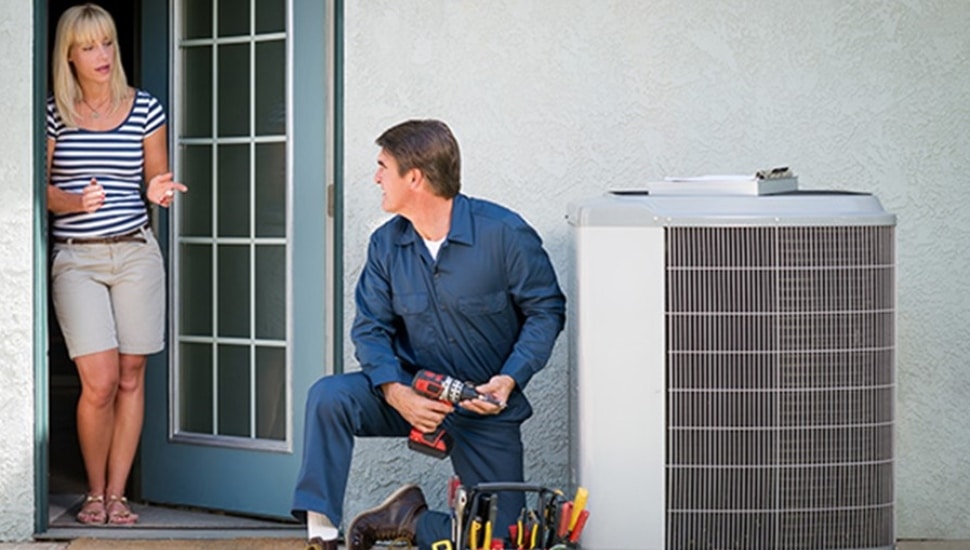6 Home Improvements to Cool Your Home and Cut Your Energy Bills

As temperatures soar and summer settles in, you may be wondering how you can cool your home for less. By implementing strategic home improvements, you can reduce your reliance on air conditioning. Here are some smart upgrades and tips to enhance the cooling efficiency of your home.
Make Sure Your Home Is Well-Insulated
Proper insulation is crucial for maintaining a comfortable indoor temperature. It’s critical to insulate your attic, walls, and floors properly to prevent heat transfer into your home during hot weather. When your home is well-insulated, it will be easier to keep it cool. (Quality insulation not only keeps your home cooler in summer, but also warmer in winter, which means you’ll save on energy costs then, too.)
Install a Smart Thermostat
Installing a smart thermostat is a wise investment for anyone looking to cool their home more efficiently. Smart thermostats use advanced sensors to analyze your usage patterns, such as when you’re home or away, and adjust settings automatically. By reducing cooling when you’re not home and regulating temperatures according to your daily routines, they help to optimize your energy usage. Smart thermostats can also be controlled remotely through your phone or the web, allowing you to quickly and easily adjust settings in response to unexpected changes in your schedule or the weather.
Schedule Maintenance on or Upgrade Your HVAC System
Regularly maintaining your HVAC unit can help ensure it’s working at peak efficiency. Be sure to schedule maintenance annually to change your filters, keep your coils and condenser free of dirt and debris, and have your HVAC ducts inspected and sealed to prevent air loss and ensure optimal airflow. If your air conditioning system is outdated, upgrading to a newer, energy-efficient model can also improve cooling performance while reducing energy consumption. Consider systems with a high Seasonal Energy Efficiency Ratio (SEER) rating and features like variable-speed compressors for better temperature control and energy savings.
Make Good Use of Fans
On average, fans cost just 14 cents a day to run and, according to the U.S. Department of Energy, can make you feel up to four degrees cooler. Using fans strategically may allow you to raise your thermostat setting without sacrificing comfort. Tabletop and box fans are good for personal cooling, while ceiling fans offer comfort throughout a room. When ceiling fans are used in conjunction with your A/C, cool air will be distributed more effectively. Another option to consider is installing a whole-house fan for when nighttime temperatures drop. Running a whole-house fan draws only as much power as a couple of lightbulbs, which makes it much more economical than running the A/C.
Plant Shade Trees
Strategically planting trees or installing awnings can help block direct sunlight from entering your home. This reduces heat gain and lessens the workload on your cooling system. Focus on shading windows that receive the most sunlight, especially on the east and west sides of your home. Shading your home and reducing the need for air conditioning will contribute to significant energy savings over time. According to the U.S. Forest Service, strategically placed trees can reduce air conditioning needs by up to 56 percent.
Install Energy-Efficient Windows
Modern windows are designed with advanced materials that offer superior insulation and better sealing than older windows. Getting new windows can increase your home’s energy efficiency by allowing less heat to escape in the winter and blocking heat from coming in during the summer. This is especially true when you upgrade from single-panel to double-panel windows. Look for energy-efficient windows and windows with low-emissivity (low-E) coatings to further reduce heat gain.
By implementing these home improvements and tips, you can create a more comfortable indoor environment while also reducing your energy consumption and utility bills. Cooling your home efficiently not only benefits your wallet, but also reduces carbon emissions associated with energy production, contributing to a healthier environment.
How to Cover the Costs of Home Improvements with a HELOC
A home equity line of credit can be a budget-friendly way to finance your home improvement projects year-round. You can borrow up to 95 percent of your primary home’s appraised value, minus outstanding mortgages. Citadel Credit Union’s team of home loan experts can help you determine how much you can borrow, calculate what your loan payments would be, review the loan requirements, and discuss current home equity rates.
Join Our Community
Never miss a Delaware County story!
"*" indicates required fields








![95000-1023_ACJ_BannerAd[1]](https://delco.today/wp-content/uploads/sites/3/2023/03/95000-1023_ACJ_BannerAd1.jpg)






















